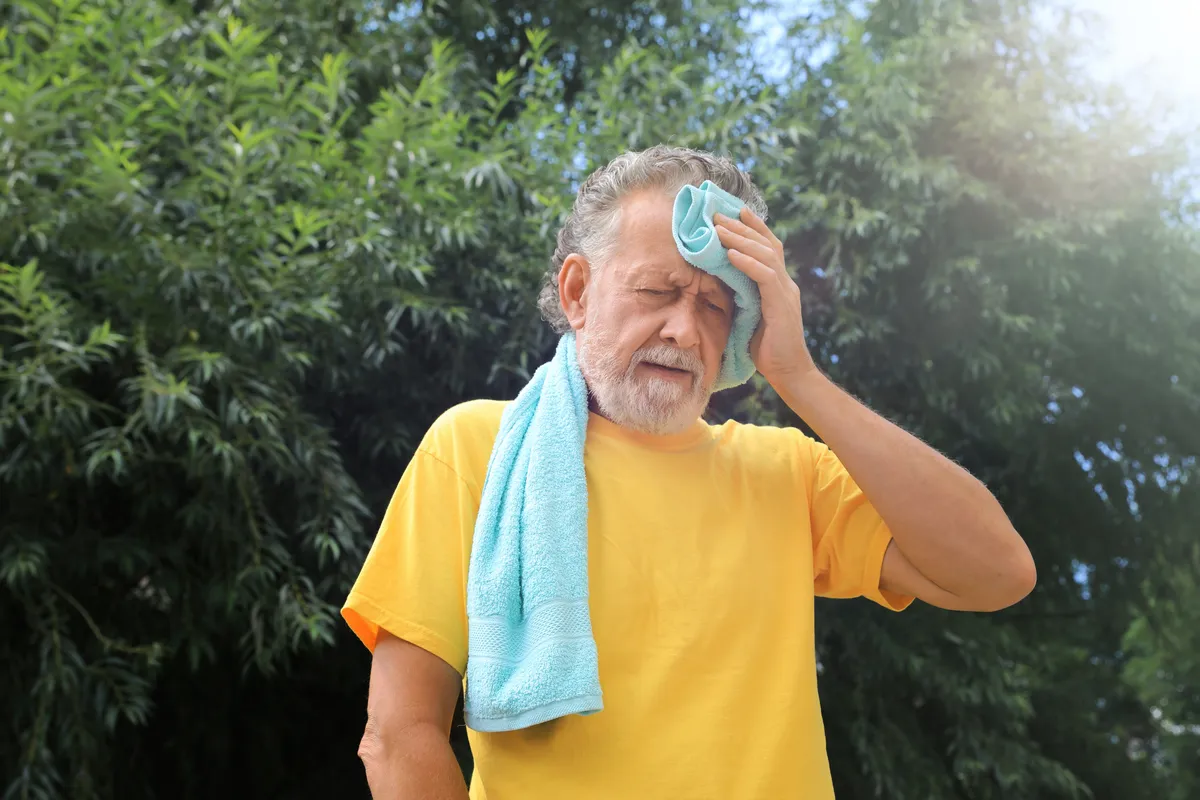Seniors are particularly vulnerable to the effects of high temperatures for several reasons. Firstly, the body's ability to regulate temperature decreases with age. In older people, the processes of sweating and evaporation, which are key to maintaining proper body temperature, do not work as efficiently as in younger people. Reduced cardiovascular capacity and impaired kidney function also contribute to difficulties in maintaining water-electrolyte balance.
In addition, seniors often take medications that can affect the body's ability to adapt to high temperatures. Diuretics, beta-blockers or some antidepressants can reduce the body's ability to sweat or lead to dehydration. Age is also often associated with chronic diseases such as diabetes, heart disease or chronic obstructive pulmonary disease (COPD), which increase the risk of heat-related complications. Finally, seniors may have limited mobility, making it difficult for them to find cooler places or ensure they have enough fluids. All of these factors make older people particularly vulnerable to the effects of heat and dehydration.
Symptoms of overheating and dehydration in older people
Recognising the symptoms of overheating and dehydration in older people is key, as they can lead to serious health complications. In seniors, symptoms can be subtle and easily overlooked, so it is important to be alert to any changes in their condition.
Symptoms of overheating:
- Dizziness and fainting
- Excessive sweating
- Nausea and vomiting
- Accelerated heart rate and respiration
- Muscle cramps
Symptoms of dehydration:
- Dry mouth and thirst
- Decreased urinary excretion
- Constipation
- Dry, cool skin
- Confusion and disorientation
If any of these symptoms occur in an elderly person, it is important to take immediate action to cool the body and rehydrate. In more severe cases, medical intervention may be necessary, so symptoms of overheating and dehydration should not be underestimated.
How to ensure adequate hydration for seniors?
Ensuring that seniors are adequately hydrated is key, especially during hot weather when the risk of dehydration increases. It is important for seniors to drink water regularly throughout the day, even if they do not feel thirsty, as the feeling of thirst can be diminished with age. Encouraging them to drink small amounts of water every hour and consuming electrolyte-rich drinks such as isotonic drinks or coconut water can help maintain water-electrolyte balance.
Eating fruits and vegetables with a high water content, such as watermelon, cucumber and oranges, is also an effective way to stay extra hydrated. It is a good idea to avoid dehydrating drinks such as alcohol and caffeinated beverages, as these can increase the risk of dehydration. Monitoring seniors' fluid intake, regularly checking their urine colour (it should be bright yellow) and using technology to remind them to drink water can help ensure they stay hydrated and protect themselves from the effects of hot weather.
The importance of appropriate clothing and sun protection
Proper clothing and protection from the sun are key for seniors to avoid overheating and other negative effects of hot weather. Choosing lightweight, light-coloured clothing made from natural materials, such as cotton or linen, can help maintain thermal comfort. Light colours reflect the sun's rays, which helps to reduce heat build-up, while loose cuts allow air to circulate freely.
Protecting the head and face from direct sunlight is also extremely important. Wearing wide hats or baseball caps, as well as sunglasses with UV filters, can effectively protect against the sun's harmful effects. Using sunscreen with a high SPF on exposed parts of the body is essential to prevent sunburn and reduce the risk of skin cancer.
Avoiding being in the sun during the hottest hours of the day, usually between 10am and 4pm, and seeking shade when outdoors are other measures that can help protect against the sun. Seniors should also remember to wear breathable shoes that allow their skin to breathe, which further aids thermal comfort and prevents overheating.

